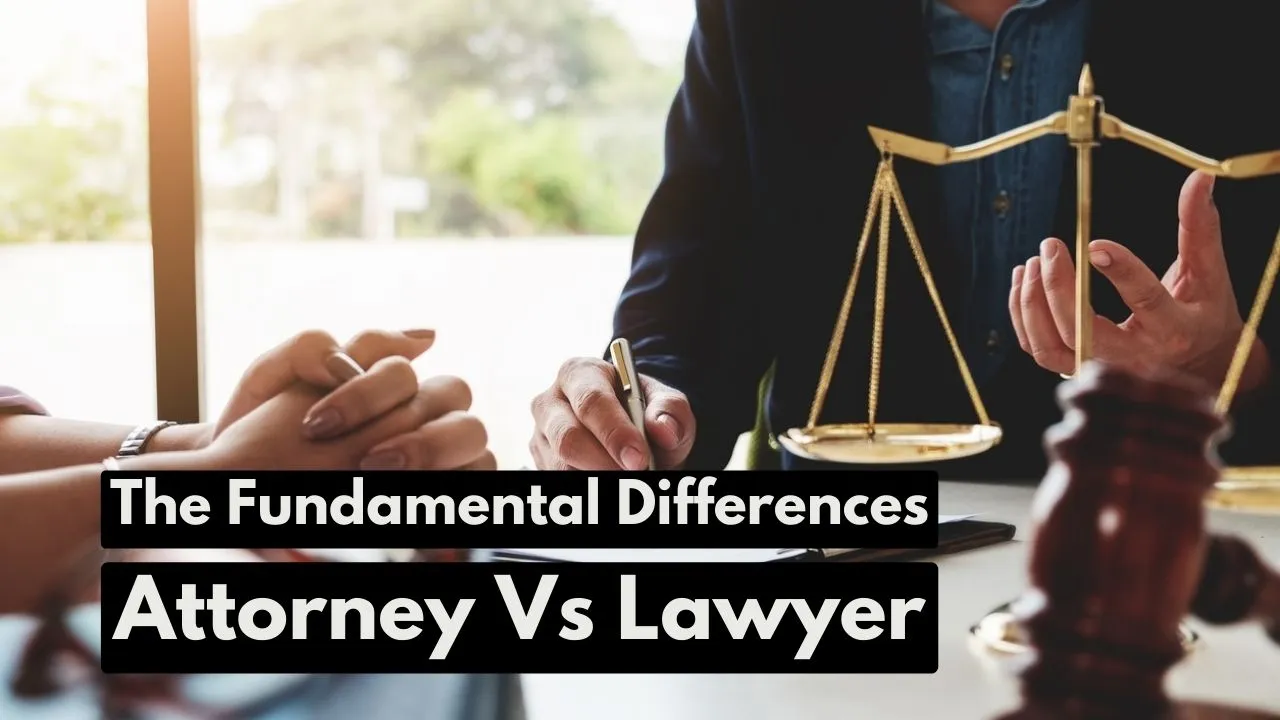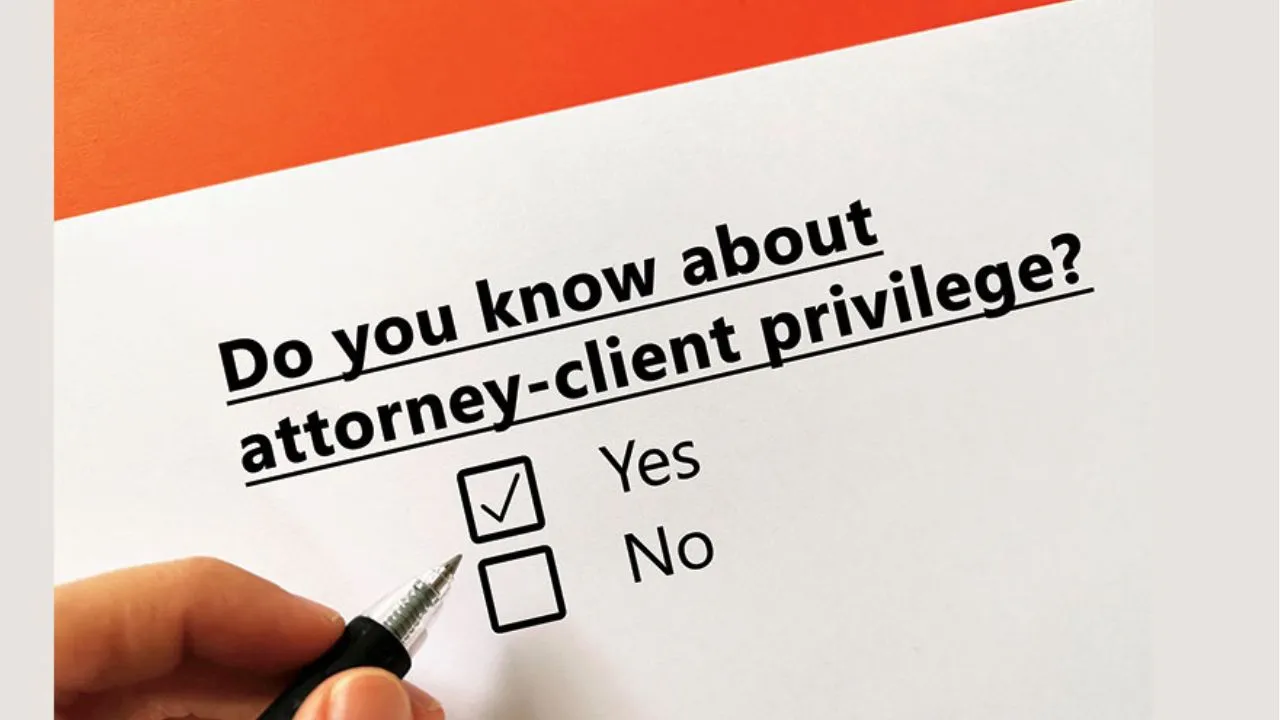No doubt! The legal system can be complex and daunting.
That’s why people turn to attorneys for guidance and representation.
At the heart of this lies the attorney-client relationship, the relationship is the bedrock of the legal profession, developed in trust, communication, and a shared commitment to justice.
Yet, even the strongest foundations can crack under pressure, leading to the unsettling reality of a breakdown between lawyer and client.
In this article, we discuss the complexities of an attorney-client relationship and simplify it in the best possible way.
What The Attorney-Client Relationship Is All About?
The attorney-client relationship is a fundamental aspect of the legal profession, which is rooted in principles of trust, confidentiality, and representation.
It is a contractual relationship between an attorney (or law firm) and a client, established when the client seeks legal advice or representation from the attorney.
Confidentiality and Trust: Confidentiality is key in the attorney-client relationship. Clients must feel safe disclosing sensitive information, fostering trust, and enabling open communication.
Legal Representation: Attorneys provide legal advice, counsel, and representation to clients, including drafting documents, negotiating, or advocating in court.
Duty of Loyalty: Attorneys must act in the client’s best interests, avoiding conflicts of interest to ensure focused advocacy.
Professionalism and Ethics: Bound by professional ethics, attorneys maintain competence, communicate effectively, and uphold integrity and honesty.
Informed Consent: Clients have the right to understand their legal choices and give informed consent before actions are taken on their behalf.
Communication and Collaboration: Attorneys keep clients informed, respond promptly, and collaborate on strategies tailored to client needs.
Fee Arrangements and Billing: Transparent discussions about fees and expenses ensure clients can make informed decisions about costs.
Termination of Representation: Either party can end the relationship under certain circumstances, with attorneys adhering to ethical and legal standards to protect clients during the transition.
Why It Is Important To Understand Attorney-Client Relationship?
Understanding the attorney-client relationship is essential for both clients and attorneys because it ensures effective communication, protects legal rights, and facilitates the best possible outcome in legal matters.
There are several reasons why understanding the attorney-client relationship is important, some of them are-
✅ Protection of Rights and Interests
Clients need to understand their rights and obligations within the attorney-client relationship to confirm that their legal interests are protected throughout the legal process.
And this includes knowing what information is confidential, understanding the scope of representation, and being aware of potential conflicts of interest.
✅ Effective Communication
Clear communication is essential for a successful attorney-client relationship. Clients who understand the dynamics of the relationship are better prepared to communicate their needs and concerns to their attorney, leading to more effective representation.
✅ Informed Decision-Making
Clients must make informed decisions about their legal matters and the attorney-client relationship allows clients to evaluate the advice and guidance provided by their attorney, assigning them to make choices that align with their best interests.
✅ Maintaining Confidentiality
Clients need to appreciate the importance of confidentiality in the attorney-client relationship. Understanding the boundaries of confidentiality helps clients feel more comfortable disclosing sensitive information to their attorney, enabling the attorney to provide more effective representation.
✅ Throughout The Legal Processes
Legal proceedings can be complex and daunting for clients, which is why the attorney-client relationship is important because it provides clients with a framework for the legal process, knowing what to expect from their attorney, and how to best participate in their own legal representation.
✅ Ethical Considerations
Attorneys are bound by ethical rules and obligations in their interactions with clients. Clients who understand the attorney-client relationship are better able to recognize and address ethical issues that may arise during the course of representation, ensuring that their rights are protected.
✅ Building Trust and Rapport
Clients who understand the nature of the relationship and the duties owed to them by their attorney are more likely to trust their attorney’s judgment and expertise, leading to a stronger and more productive working relationship.
What Constitutes an Attorney-Client Relationship And How It’s Formally Established?

An attorney-client relationship isn’t just a casual conversation with a lawyer. It’s a formal agreement where both parties have specific duties and expectations.
An attorney-client relationship is established when an individual (the client) seeks legal advice or representation from an attorney (or law firm) and the attorney agrees to provide such services. This relationship is formed upon mutual agreement and entails certain rights and responsibilities for both parties.
Here is What Constitutes an Attorney-Client Relationship:
✔️ Seeking and Accepting Legal Help: The foundation is laid when you, the client, seek legal advice or assistance from a lawyer. The lawyer, in turn, agrees to provide that help.
✔️ Expectation of Confidentiality: A key element is the client’s reasonable expectation that their communications with the lawyer will be confidential (with some legal exceptions).
✔️ Intent to Act: There needs to be an intention for the lawyer to act on the client’s behalf. This could involve representing them in court, negotiating a settlement, or drafting legal documents.
Formal Establishment:
While an initial consultation might initiate the relationship, it’s not always formal. Here’s how it’s typically solidified:
✔️ Engagement Letter: This written document outlines the scope of the lawyer’s representation, fees, and other key details. Signing this formalizes the relationship.
✔️ Retainer Agreement: In some cases, a retainer agreement might be used. This specifies an upfront payment from the client to secure the lawyer’s services for a specific period.
Previously, I wrote an in-depth article on “How Do Lawyer Retainers Work “. Make sure you check it out.
What Are The Steps Involved In Attorney-Client Relationship?
Let’s talk about the steps involved in an attorney-client relationship.
For effective legal representation, establishing and maintaining a strong attorney-client relationship is necessary.
Here are the common steps involved in the Attorney-Client Relationship-
☑️ Initial Consultation
This is the first meeting between the attorney and the potential client. During this meeting, the attorney gathers information about the client’s legal issue, assesses the situation, and discusses potential legal strategies. The client also has the opportunity to ask questions and evaluate whether the attorney is a good fit for their needs.
☑️ Engagement Letter/Agreement
Once both parties decide to move forward, they typically formalize the attorney-client relationship through an engagement letter or agreement. This document outlines the scope of representation, the attorney’s fees, and other relevant terms and conditions.
☑️ Confidentiality
One of the fundamental aspects of the attorney-client relationship is confidentiality. Attorneys are bound by strict ethical rules to maintain client confidentiality, which means they cannot disclose any information shared by the client without their consent.
☑️ Communication
Effective communication is essential throughout the attorney-client relationship. The attorney should keep the client informed about the progress of their case, provide updates on any developments, and promptly respond to any questions or concerns the client may have.
☑️ Legal Advice and Representation
The attorney provides legal advice and representation to the client based on their expertise and experience. This may involve drafting legal documents, negotiating with opposing parties, representing the client in court proceedings, or providing guidance on legal matters.
☑️ Client Cooperation
The success of the attorney-client relationship often depends on the client’s cooperation. This includes providing all necessary information and documentation, attending meetings and court appearances as required, and following any instructions provided by the attorney.
☑️ Conflict of Interest
Attorneys have a duty to avoid conflicts of interest that could compromise their ability to represent their clients effectively. If a conflict arises during the course of representation, the attorney must address it appropriately, which may involve withdrawing from representation if necessary.
☑️ Termination of Representation
The attorney-client relationship may be terminated by either party under certain circumstances. This could be due to the completion of the legal matter, a breakdown in communication or trust, or other reasons. If either party wishes to terminate the relationship, they must do so per the terms outlined in the engagement letter or agreement.
Termination of the Attorney-Client Relationship
Understanding the termination of the relationship between attorney-client relationship is as important as the ongoing process.
The attorney-client relationship can end for several reasons, and both the client and attorney have certain rights and responsibilities during this process. Here’s a breakdown of the scenarios you mentioned:
Let’s see some circumstances where the attorney-client relationship ends
✔️ Completion of the Case: This is the most straightforward scenario. Once the legal matter is resolved through a settlement, trial verdict, or other means, the relationship typically ends.
✔️ Client Discharges Attorney (Firing): Clients have the absolute right to terminate their attorney’s services at any time, with or without reason.
✔️ Attorney Withdraws from Representation: Attorneys can withdraw under certain circumstances, but they must follow ethical guidelines. Here are some common reasons:
✔️ Conflict of Interest: If taking the case would create a conflict with another client.
✔️ Client Conduct: If the client’s behavior hinders the attorney’s ability to represent them effectively, violates the law, or is dishonest.
✔️ Non-Payment of Fees: If the client fails to pay outstanding legal fees after reasonable attempts to collect.
✔️ Breakdown in Communication/Trust: If a healthy working relationship becomes impossible.
Ethical Considerations for Attorney Withdrawal:
Attorneys can’t simply abandon a client in the middle of a case. Here’s what they must consider:
- Timing: Withdrawal should ideally happen before a critical stage in the case (e.g., trial).
- Notice: The attorney must give the client reasonable notice to find new representation.
- Protecting Client Interests: The attorney should help the client transition to a new attorney by providing them with their case file and any necessary information.
- Court Approval: In some situations, the attorney may need court approval to withdraw.
Steps for Clients Firing Their Attorney:
- Communication: Inform the attorney directly of your decision to terminate the relationship. It’s best to do this in writing (email or letter).
- Reasoning (Optional): While you don’t have to provide a reason, briefly stating your concerns can help facilitate the transition.
- Case File: Request a copy of your complete case file, including all documents and communications.
- New Attorney: Start searching for a new attorney who aligns with your needs and case specifics.
- Outstanding Fees: Be prepared to settle any outstanding legal fees with the old attorney.
Legal Ethics Obligation
There is a strong legal ethics that is obligatory to follow along attorney-client relationship. These duties ensure your interests are protected and guide the lawyer’s conduct throughout the case.
By understanding these ethical obligations, you can build trust with your lawyer and feel confident that they are acting in your best interest.
Some key ethical principles:
✔️ Confidentiality: This is the cornerstone. Your lawyer cannot disclose any information you share with them, without exceptions like imminent harm. (Think attorney-client privilege!)
✔️ Loyalty: Your lawyer’s primary loyalty lies with you, the client. They must prioritize your best interests and avoid conflicts that could compromise your case.
✔️ Competence: Your lawyer has a duty to be qualified in the area of law relevant to your case. They should possess the skills and knowledge necessary to effectively represent you.
✔️ Relevant Codes of Conduct: These principles are codified in professional codes of conduct, such as the American Bar Association Model Rules of Professional Conduct. These codes provide a framework for lawyers to uphold ethical standards.
Attorney-Client Relationship Example
Let’s take a real-life example of an attorney-client relationship to understand how it goes along-
Imagine Sarah, facing a complex legal issue, seeking advice from an experienced attorney named David.
Initial Consultation: Sarah schedules a meeting with David to discuss her legal concerns. During the consultation, she provides details about her situation, and David listens attentively, asking relevant questions to understand the case fully.
Engagement Letter: Impressed by David’s expertise and demeanor, Sarah decides to retain him as her attorney. They formalize their relationship through an engagement letter, outlining the scope of representation, fees, and other terms.
Confidentiality: Sarah feels reassured knowing that anything she shares with David is protected by attorney-client privilege. She feels comfortable disclosing sensitive information, knowing it won’t be disclosed without her consent.
Legal Advice and Representation: David diligently researches Sarah’s case, providing her with comprehensive legal advice and outlining potential strategies. He keeps her informed at every step, guiding her through the legal process with expertise and empathy.
Communication and Cooperation: Sarah appreciates David’s prompt communication and responsiveness to her questions and concerns. She cooperates fully, providing all necessary information and documents to support her case.
Conflict Resolution: Despite facing challenges along the way, David effectively navigates the legal complexities, advocating fiercely for Sarah’s rights and interests. Through negotiation, mediation, or litigation, he works tirelessly to achieve the best possible outcome for her.
Closure and Gratitude: Eventually, Sarah’s legal matter is resolved, thanks to David’s skillful representation. Grateful for his support and dedication, she expresses her appreciation and reflects on the positive impact of their attorney-client relationship.
The examples above are just snaps, the exact process is different from what it looks like here. But give a simple overview of the relationship.
Attorney-Client Relationship Breakdown
Identifying the signs of a breakdown in the attorney-client relationship is the first step toward resolution. These signs may can be:
- Communication Issues: Breakdowns often manifest through poor communication, such as unreturned calls or emails, misunderstandings, or lack of clarity regarding case progress.
- Differing Expectations: Misalignment in expectations regarding outcomes, strategy, or the level of involvement can strain the relationship.
- Lack of Trust: Trust is fundamental in any attorney-client relationship. If trust erodes due to perceived incompetence, unethical behavior, or conflicts of interest, it can lead to a breakdown.
- Ethical Concerns: Any hint of ethical misconduct or breaches of confidentiality can severely damage the relationship and undermine confidence in legal representation.
Steps To Address The Issues
When facing with a breakdown in the attorney-client relationship, it’s essential to take proactive steps to address the issues and work toward resolution:
- Open Communication: Initiate a candid conversation with your attorney to express concerns and clarify expectations. Clear, honest communication is key to resolving misunderstandings and rebuilding trust.
- Seek Clarification: If there are uncertainties or disagreements about legal strategy or case progress, seek clarification from your attorney. Understanding their perspective can help bridge the gap and realign expectations.
- Consider Mediation: In cases where communication has completely broken down or trust is severely compromised, mediation can provide a structured forum for resolving conflicts with the assistance of a neutral third party.
- Reviewing Options: If efforts to reconcile prove unsuccessful, it may be necessary to explore alternatives, such as seeking new legal representation or pursuing a formal complaint through the appropriate regulatory bodies.
Moving Forward
Regardless of the outcome, navigating a breakdown in the attorney-client relationship can be emotionally and logistically challenging. It’s essential to prioritize self-care and seek support from trusted friends, family members, or professional advisors during this process.
Ultimately, maintaining a constructive and respectful approach can help mitigate the impact of a breakdown and pave the way for a more positive legal experience in the future.
FAQs Related To Attorney-Client Relationship
What is attorney-client privilege?
Attorney-client privilege is a legal concept that protects confidential communications between an attorney and their client. This privilege allows clients to freely discuss their legal matters with their attorney without fear of disclosure to third parties.
When does attorney-client privilege begin?
Attorney-client privilege begins as soon as a person seeks legal advice from an attorney in confidence. This means that once the individual engages the attorney’s services and starts discussing their legal issues, the communications are generally protected by attorney-client privilege.
When does attorney-client privilege end?
Attorney-client privilege typically ends when the client waives the privilege or when it is otherwise legally waived or overridden. For example, if the client voluntarily discloses privileged information to a third party or if a court orders disclosure, the privilege may be waived.
What are the ethics involved in the lawyer-client relationship?
The lawyer-client relationship is governed by ethical rules that require attorneys to uphold certain standards of conduct. These include maintaining client confidentiality, avoiding conflicts of interest, providing competent representation, and communicating effectively with clients. Ethical considerations are paramount in ensuring the integrity and professionalism of the lawyer-client relationship.
How Long does attorney-client privilege last?
Attorney-client privilege lasts indefinitely, beginning with the confidential seeking of legal advice. It extends beyond case resolution or the relationship’s end. Exceptions occur if the client voluntarily discloses privileged information or if a court orders disclosure. Awareness of these exceptions is crucial for safeguarding confidential communications.
Final Thoughts
The attorney-client relationship stands as a cornerstone of the legal profession, built on trust, confidentiality, and mutual respect.
From the initial consultation to the resolution of legal matters, this relationship is guided by ethical standards and principles. It begins with a commitment to confidentiality, ensuring that clients can freely disclose information to their attorneys without fear of it being divulged to third parties.
Effective communication, cooperation, and a clear understanding of roles and responsibilities further solidify this relationship.
Moreover, attorney-client privilege safeguards the confidentiality of communications, allowing clients to confide in their attorneys without hesitation. While this privilege is robust, exceptions may arise, necessitating a thorough understanding of its boundaries and limitations.
By upholding ethical standards and nurturing a strong attorney-client relationship, attorneys can provide effective representation, advocate for their client’s interests, and ultimately uphold the principles of justice.




Leave a Reply